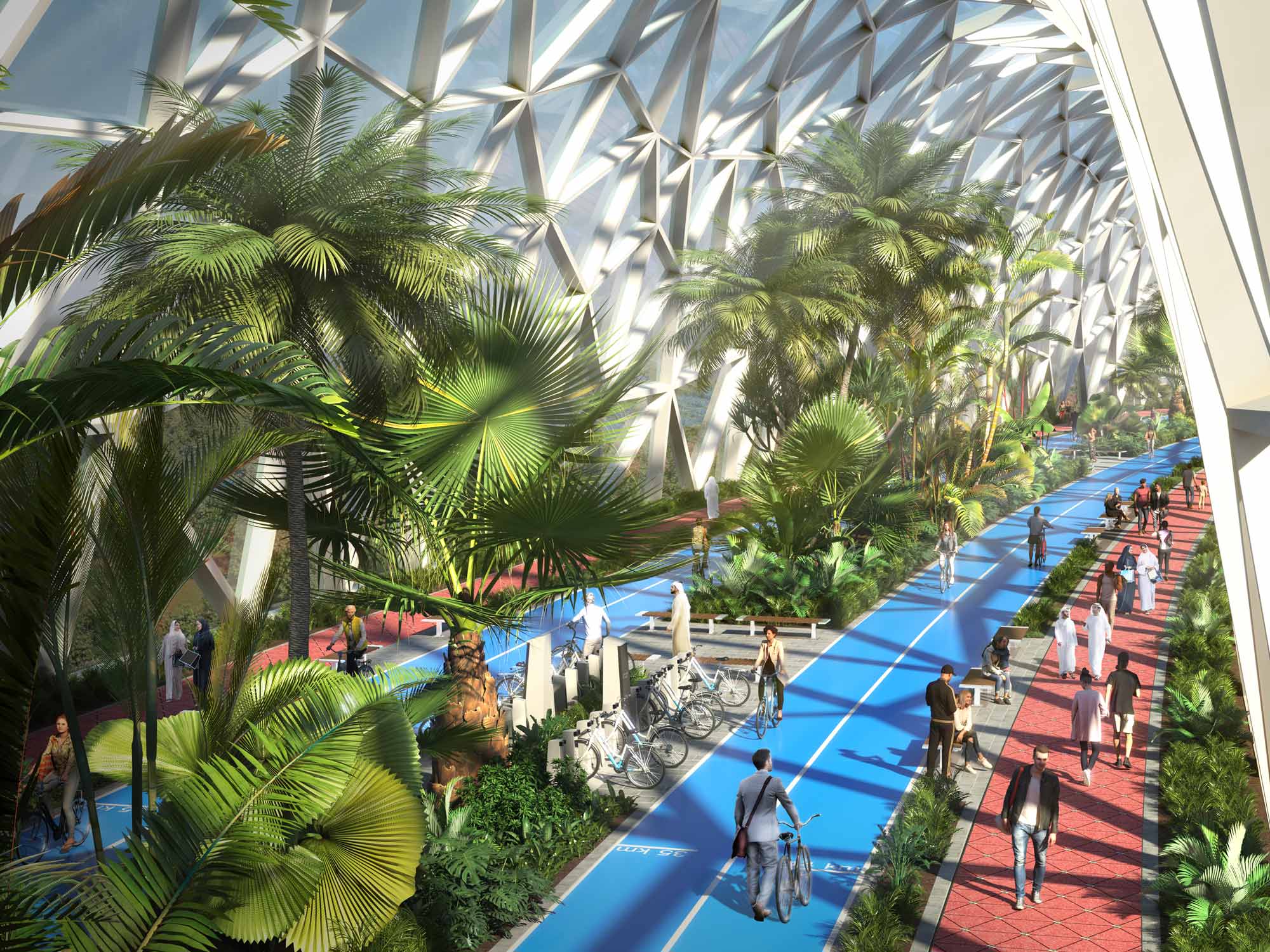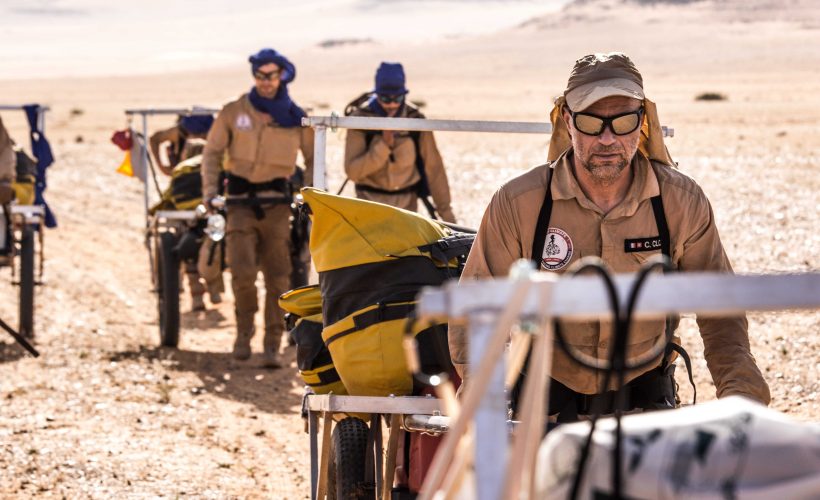Tech & Business
3.9.2023
A smart road in Dubai: Introducing The Loop, which will draw energy from footfall

At 93 km long, The Loop aims to be one of the world’s smartest cycling and running facilities. The trails will be integrated with a kinetic pavement, which draws usable energy from every step. It will also have its own app to encourage walkers.
In Dubai, a smart, sustainable highway is in the works. The goal: to provide better social infrastructure and facilities for residents and thus become the world’s leading city in terms of quality of life. This is the goal that the Dubai government has set for 2040.
This is certainly an ambitious goal for a city that relies heavily on road travel – with infrastructure designed precisely to encourage it – and where minimum temperatures rarely fall below 14 degrees in the coldest month (January).
See also
undefinedA sustainable and environmentally neutral urban highway
It is precisely because of these and other challenges that the government decided to award the active mobility project to Urb, a company experienced in the design and development of sustainable cities, which will be responsible for, among other things (three projects in total are being implemented by the company in Dubai), building a sustainable and environmentally neutral urban highway for active mobility (i.e., for cyclists and pedestrians).
The Loop, the smart and sustainable urban highway for cyclists and pedestrians
The Loop will be one of the world’s most intelligent cycling and pedestrian infrastructures, with a length of 93 km. The goal is to provide its 3.3 million residents with a safe and pleasant environment (thanks to climate control) and thus encourage walking and cycling, in line with the Dubai government’s goal of making active mobility the main mode of travel for its citizens (the target is 80% by 2040).
Voir cette publication sur Instagram
A zero-emission transportation system that will be sustainable and self-sufficient in terms of energy: the lanes are indeed integrated with a kinetic pavement, which draws usable energy from each step. The technology works by using electromagnetic induction generators that move vertically under the weight of a person’s step. This movement creates energy, which is then supplied to the generators in the form of usable electricity.
See also
Flying taxis in Dubai by 2026 ?A reward system for pedestrians
The Loop is an example of sustainability by design: the energy-generating floors are made from recycled car tires, which flex when stepped on, generating kinetic energy. It is also equipped with a rainwater collection system. Technology is an essential part of the infrastructure. The pavement is equipped with sensors that provide critical data, such as the number of steps and the amount of energy generated in real time.
The Loop will also have its own app, through which residents will receive rewards based on the length of their daily bike or walking trips. The app is designed to promote public engagement: the more a resident uses The Loop, the more rewards they receive. This will not only help Dubai fight traffic pollution, but also promote the well-being of residents by encouraging them to adopt a more active and healthy lifestyle.
popular

